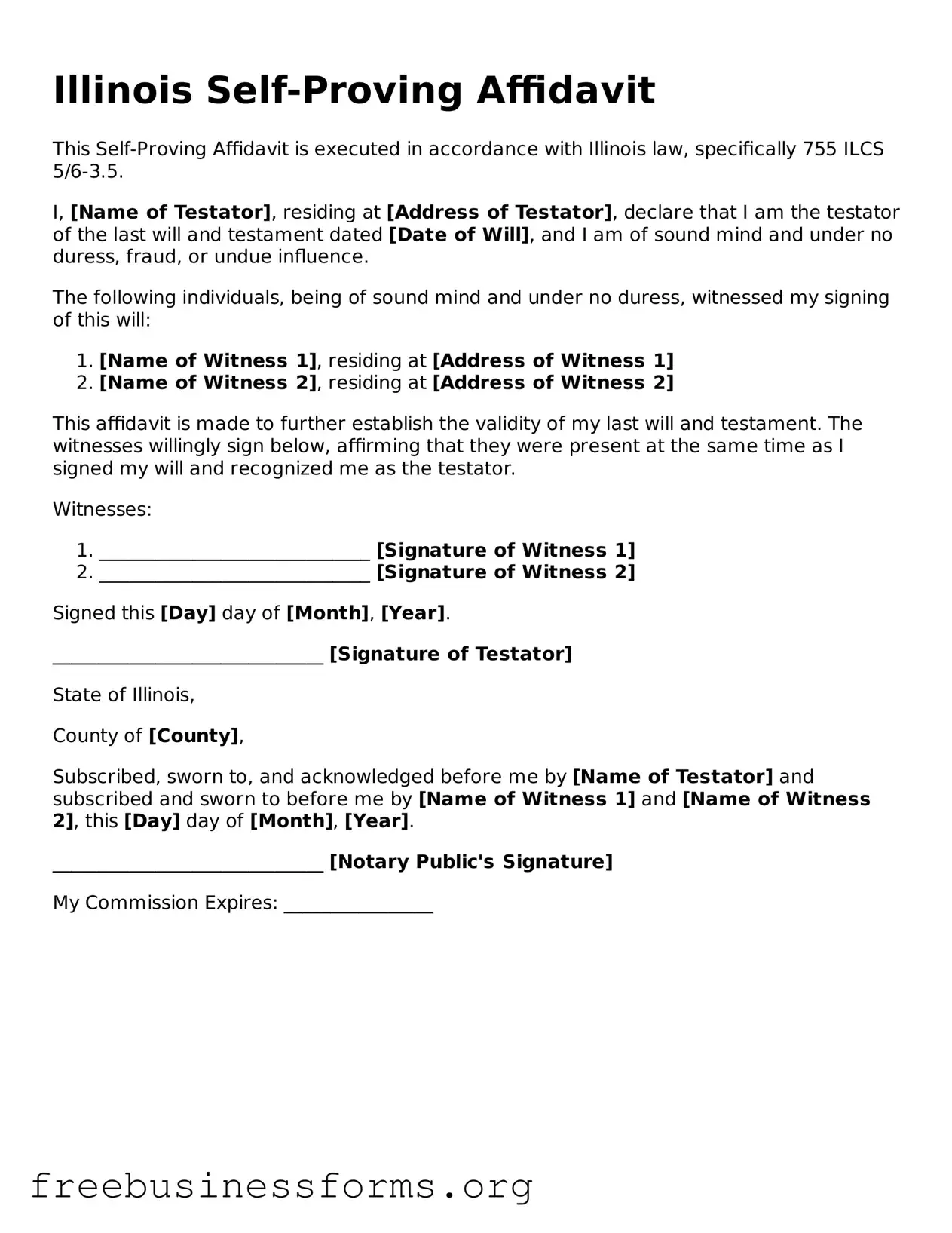Blank Self-Proving Affidavit Template for Illinois
The Illinois Self-Proving Affidavit form is a legal document that allows a testator's will to be validated without the need for witnesses to appear in court. This form simplifies the probate process, ensuring that the wishes of the deceased are honored efficiently. By providing a sworn statement from the testator and witnesses, the affidavit enhances the reliability of the will's authenticity.
Open Form Here

Blank Self-Proving Affidavit Template for Illinois
Open Form Here

Open Form Here
or
↓ PDF File
Quickly complete this form online
Complete your Self-Proving Affidavit online quickly — edit, save, download.